1. The document discusses various verb tenses including present, past, future, present perfect, past perfect, and future perfect tenses. It explains how the tenses are used to indicate different times and provides examples.
2. Consistency of tense is important, and verbs within a paragraph should be in the same tense if events occur simultaneously or different tenses if events occur at different times.
3. Modals are helping verbs that express attitudes like ability, permission, possibility, requirement, obligation, likelihood, and condition. Common modals and their uses are defined.
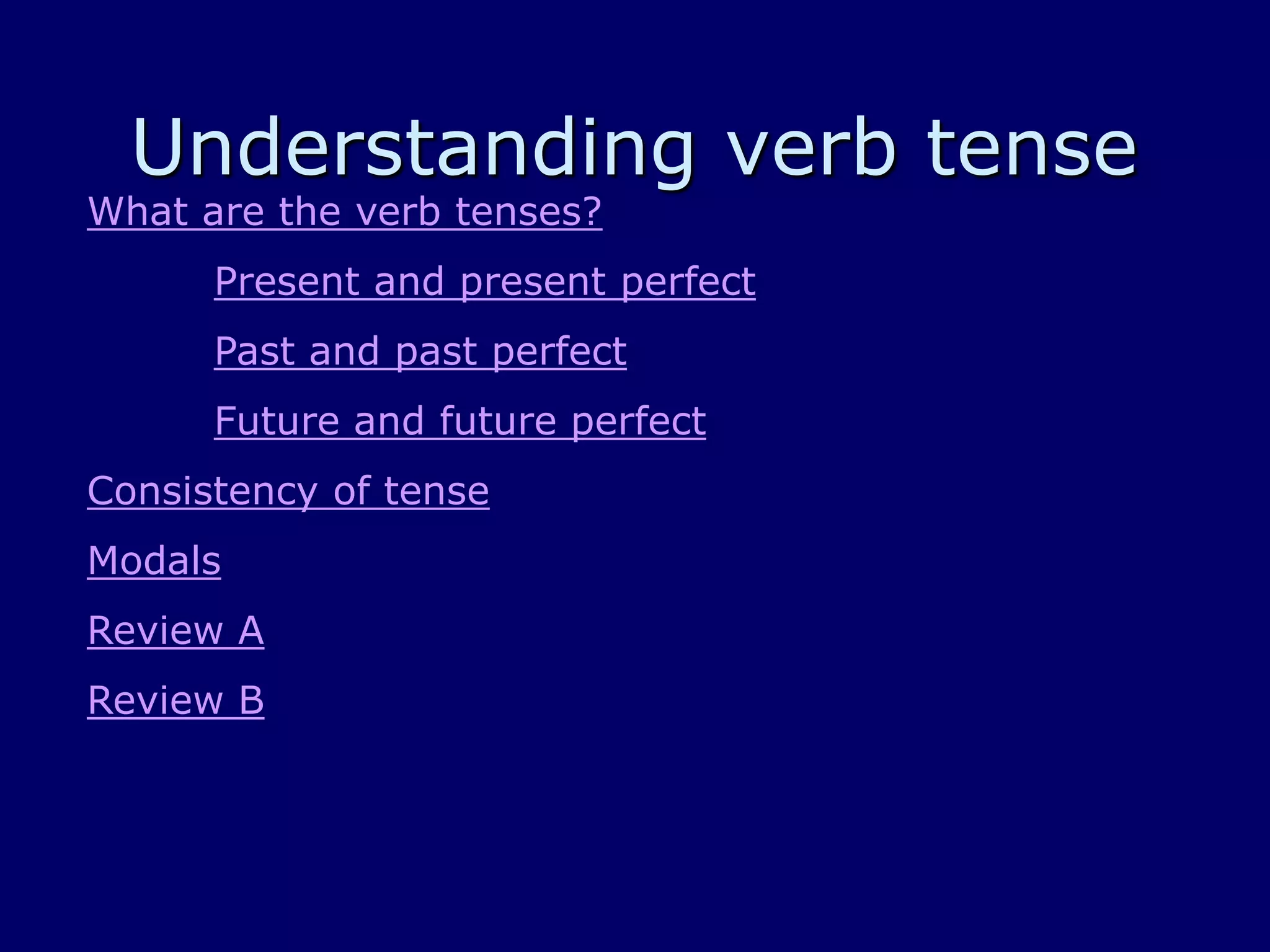
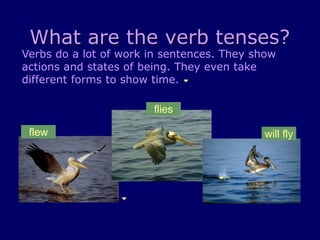
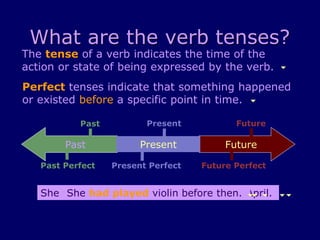
![The tenses of verbs are formed from the four
principal parts of verbs.
Present Participle
Base Form
Past
Past Participle
smile choose
[is] smil [is] choos ing
smile d cho se
[have] smile d [have] cho sen
ing
What are the verb tenses?](https://image.slidesharecdn.com/understandingverbtense-221128065057-a1584e58/85/understanding-verb-tense-ppt-4-320.jpg)
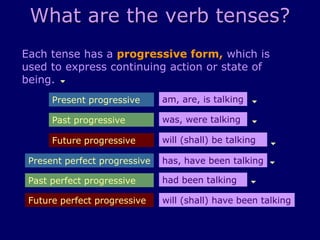
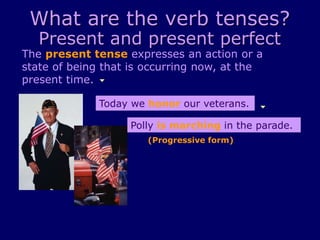
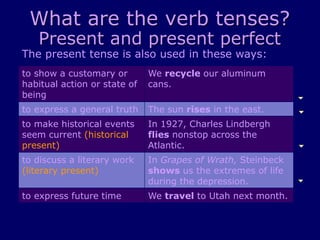
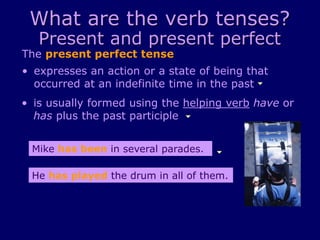
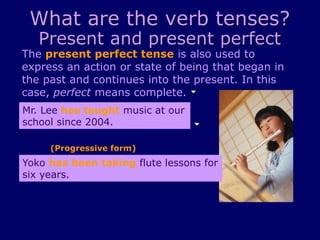
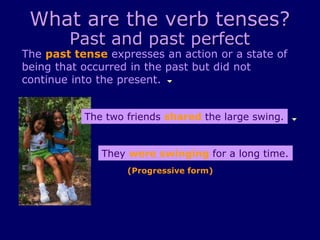
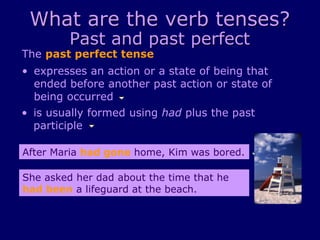
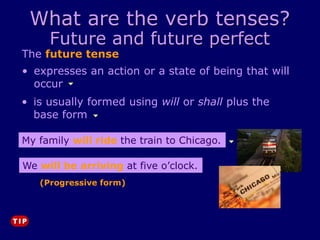
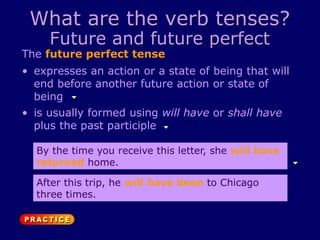
![[End of Section]
Change the tense of the verb in each sentence, as indicated
in parentheses.
1. I do not miss the bus. (Change to future.)
2. Were they at the party? (Change to past perfect.)
3. By then, Keith had returned. (Change to future perfect.)
4. The team will practice for an hour with no break. (Change
to future perfect progressive.)
5. My sister dances well. (Change to past.)
On Your Own
What are the verb tenses?](https://image.slidesharecdn.com/understandingverbtense-221128065057-a1584e58/85/understanding-verb-tense-ppt-14-320.jpg)
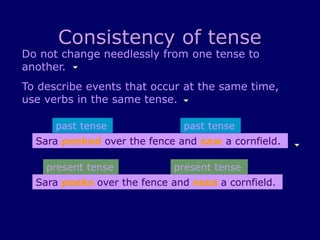
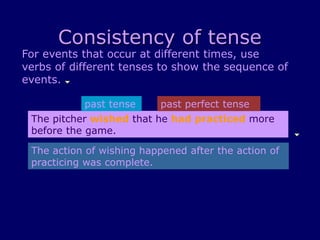
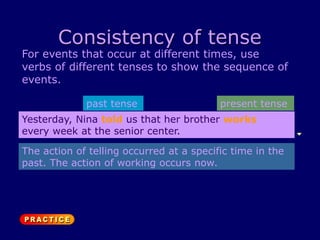
![Consistency of tense
[End of Section]
On Your Own
Proofread the paragraph for unnecessary changes of verb
tense. Change the verbs to make the tenses consistent.
(1) I was in my room Saturday morning, planning to
study for two hours. (2) To my surprise, Nancy Chang drops
by. (3) She dashed into the house, runs up the stairs, and
calls my name. (4) What she wanted was a fishing
companion. (5) As I get my fishing gear together, I was so
happy. (6) On our way to the lake, we notice some dark
clouds. (7) We wished we checked the weather first.](https://image.slidesharecdn.com/understandingverbtense-221128065057-a1584e58/85/understanding-verb-tense-ppt-18-320.jpg)
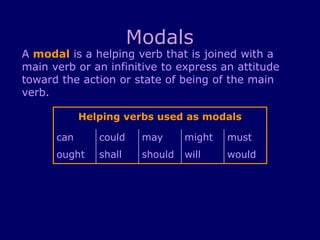
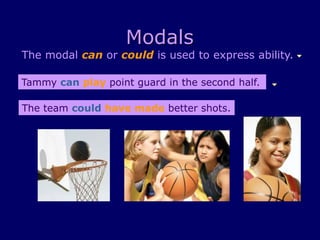
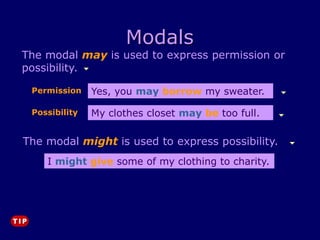
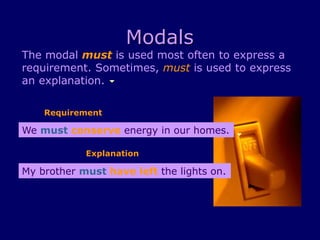
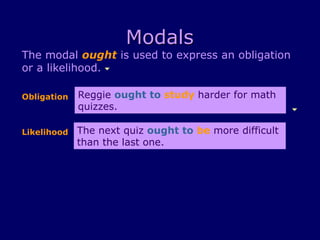
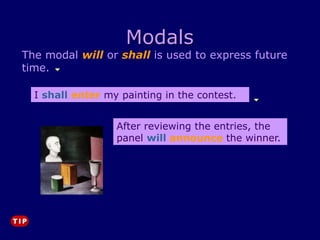
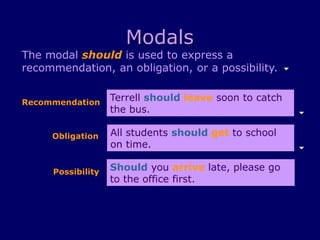
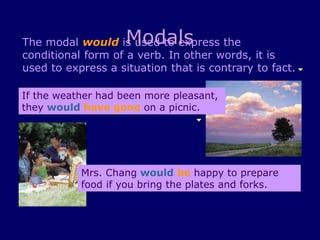
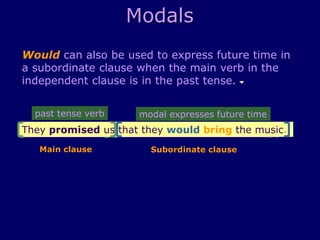
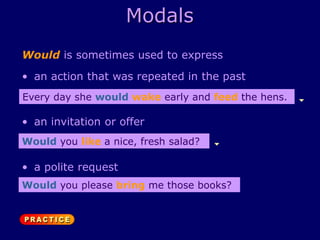
![Modals
[End of Section]
Supply an appropriate modal for each sentence.
1. Jen _____ have cleaned out the garage yesterday.
2. _____ you please help Merrill with that large box?
3. You _____ probably guess what I am about to say.
4. If the train had been faster, we _____ have arrived
sooner.
5. I’m not certain, but I think Dad _____ be cooking stew
for dinner tonight.
On Your Own](https://image.slidesharecdn.com/understandingverbtense-221128065057-a1584e58/85/understanding-verb-tense-ppt-29-320.jpg)
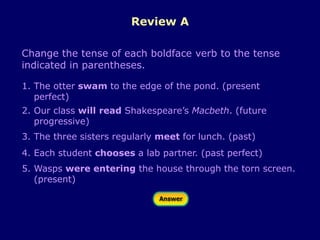
![Review B
[End of Section]
1. Colleen _____ almost reach the light bulb. (shows ability)
2. Jack _____ repair the bicycle tomorrow. (future tense)
3. Most of the girls _____ already left. (present perfect)
4. I _____ attend the concert if only I had more time.
(shows a condition)
5. Tamara opens the refrigerator and _____ inside.
(consistent tense)
Supply an appropriate modal, helping verb, or main verb to
complete each sentence correctly. The hints in parentheses
will help you.](https://image.slidesharecdn.com/understandingverbtense-221128065057-a1584e58/85/understanding-verb-tense-ppt-31-320.jpg)
